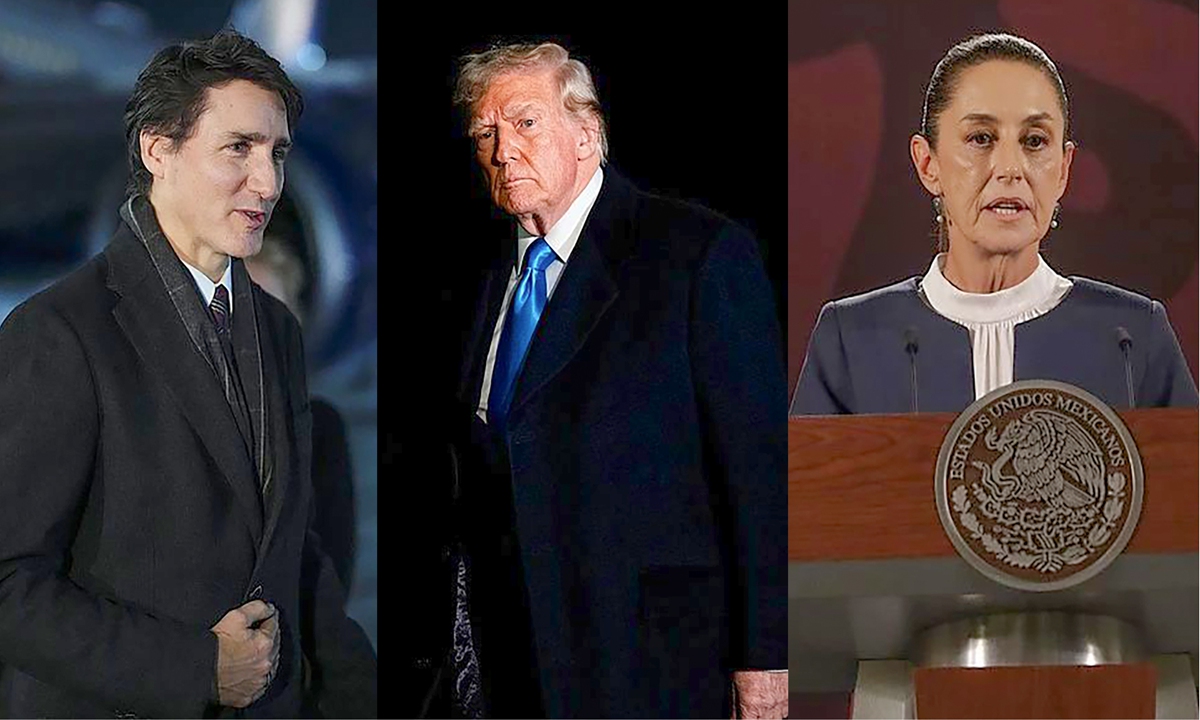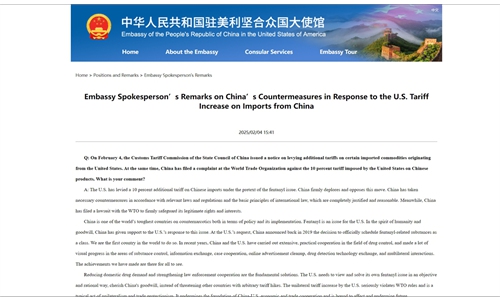US delays plan to impose tariffs on Canada and Mexico, showing 'game-like unpredictability'

Photo: GT
US President Donald Trump agreed to pause tariffs on Canada and Mexico after speaking with the leaders of the two countries on Monday. The pause introduces a game-like unpredictability designed to exert pressure on these two countries, according to an analyst.Trump announced 25 percent tariffs on goods made in Mexico and Canada over the weekend, according to CNN.
After a flurry of diplomatic activity and phones calls at the highest level, Trump decided to pause the tariffs on America's neighbors after Mexican President Claudia Sheinbaum and Canadian Prime Minister Justin Trudeau made commitments, some of which they had already made, to bolster security at their respective borders with the US, according to CNN.
Trudeau posted on social platform X on Monday afternoon, saying that Canada is making new commitments to appoint a Fentanyl Czar. "We will list cartels as terrorists, ensure 24/7 eyes on the border, launch a Canada- US Joint Strike Force to combat organized crime, fentanyl and money laundering," he posted.
"I have also signed a new intelligence directive on organized crime and fentanyl and we will be backing it with $200 million," Trudeau posted.
In a similar move, "Mexico will reinforce the northern border with 10,000 members of the National Guard immediately, to stop drug trafficking from Mexico to the United States, in particular fentanyl," Mexican President Claudia Sheinbaum said in a post on social media platform X.
Trump's approach to border and trade policy is characterized by a game-like unpredictability. However, this strategy of leveraging the threat of increased tariffs is more about creating a dramatic narrative to bolster his image than addressing real issues, said Lü Xiang, a US studies expert and research fellow at the Chinese Academy of Social Sciences. Lü told the Global Times that Canada and Mexico have consistently cooperated with US border policies.
According to a commentary released by Brookings on Monday, "Trump's 25 percent tariffs on Canada and Mexico will be a blow to all 3 economies."
The impact of these tariffs on trade across North America will be particularly impactful, not only because of the large volume of trade that is involved, but also because of the importance of supply chains, which comprise around 50 percent of intraregional trade, the article said.
"I firmly believe that the US is not in a position to impose a 25 percent tariff on Mexico and Canada. Implementing such high tariffs on goods from Canada and Mexico would inevitably trigger immediate inflation, further straining the US economy," Lü noted.
An AP report wrote that while the trade war feared by investors, companies and political leaders now seems less likely to erupt, it does not mean the drama over Trump's tariff threats has ended.
Canada and Mexico have bought some additional time, but Trump could easily renew his tariffs and already plans to announce taxes on imports from the European Union, the AP report stated.
Tian Yun, an economist based in Beijing, warned that that using tariffs as a weapon for domestic problem-solving could cause severe economic damage, erode trust among trading partners and increase global market volatility.



